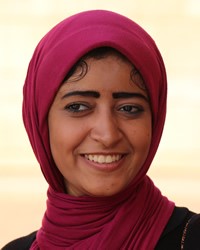Arab, Egyptian general in Libya

Photo Source:
Terry Feuerborn - Flickr
Creative Commons
|
Send Joshua Project a map of this people group.
|
| People Name: | Arab, Egyptian general |
| Country: | Libya |
| 10/40 Window: | Yes |
| Population: | 701,000 |
| World Population: | 73,595,300 |
| Primary Language: | Arabic, Egyptian |
| Primary Religion: | Islam |
| Christian Adherents: | 8.00 % |
| Evangelicals: | 0.50 % |
| Scripture: | Complete Bible |
| Ministry Resources: | Yes |
| Jesus Film: | Yes |
| Audio Recordings: | Yes |
| People Cluster: | Egyptian |
| Affinity Bloc: | Arab World |
| Progress Level: |
|
Introduction / History
Ancient Egypt was one of the world's great civilizations. Dynasties of pharaohs ruled Egypt from 3200 B.C. to 341 B.C. Egypt fell to the Persian Arab Muslim conquest in 640 A.D. Arabs, who introduced Islam and the Arabic language to Egypt in the seventh century, ruled for the next six centuries. Ottoman Turks conquered the country in 1517.
After the completion of the Suez Canal in 1869, Egypt became an important transportation hub, but fell heavily into debt. To protect its investments, Britain seized control of Egypt from 1882 until 1914. They granted full sovereignty to Egypt after World War II. Migration from Egypt mainly started in the 1970s and 1980s.
Egypt is the most rapidly growing country in the Arab world, and with limited arable land, resources are overtaxed, and society is stressed. For that reason, there is a large Egyptian diaspora that has migrated to other parts of the world, especially Europe where they go as temporary workers. Libya has been a preferred destination for Egyptian workers – initially in education and administration in the post-war era but also now for more general labor. However, the long-lasting war in Libya is a hindrance. In general, Egyptians who migrate to other Arabic speaking countries like Libya do with the intension of returning to Egypt.
Libya was similarly under Ottoman rule, from 1551 to 1912 and subsequently occupied by Italy (1912-1943) and Britain and France before becoming independent in 1951. The discovery of oil in the 1950s radically changed the way of life in Libya. Now most of the population, who once lived in tents, have settled down in towns and cities along the coast and live in apartment blocks or homes.
What Are Their Lives Like?
As with most of the Libyan population, Egyptian Arabs tend live on the northern coastal strip. In times of unrest and economic hardship in Egypt, workers continue to migrate to Libya in search of a better future despite considerable risks; they often work on building sites, and in factories, restaurants and shops. After many years of stability, they often experience deportation and mistreatment due to conflict in Libya and tensions between the two countries. Many other Egyptians are migrants in transit whose journeys are facilitated by people smugglers across the Egypt-Libya border and from the Mediterranean coast.
Most of Libya's food is imported and subsidized by the state. Favorite foods include couscous, rice, noodles, lamb, chicken, olives, and vegetables.
What Are Their Beliefs?
Islam became the state religion of Egypt in 1980. The majority of Egyptian Arabs are either Shafi, Maliki or Hanafi Sunni Muslim. Egyptians who live in nearby Libya remain Sunni Muslim like the host country.
Copts brought Christianity to Egypt very early, where it remained for 1,000 years as the primary religion. Even today, the great majority of the Christian population are still members of the Coptic Church. Evangelical Christians are a small percentage in Libya.
What Are Their Needs?
A return to stability would help Egyptian Arabs, and other non-indigenous people groups, to feel more secure in Libya. Many have experienced poverty in Egypt, which has prompted migration into and through the country, and placed them at greater risk of exploitation. Considerable courage and resilience are needed to live and witness for Jesus in Libya. Open evangelism and missions work is not allowed; extremist groups have been known to persecute and kill expatriate Christians.
With a growing missionary vision, the Egyptian Church has the potential to reach both fellow citizens and people groups in neighboring countries for Christ. The Church is limited by lack of training opportunities, experience and funds. If additional resources are provided, church planters are willing to go.
Prayer Points
Pray that Egyptian Christ followers would become a mighty missionary movement to other Arab nations.
Pray for Egyptian Arabs to have spiritual hunger and a discernment that will lead them to the cross and the empty grave.
Pray for Egyptian Arab Christians to put their faith in the Risen Christ rather a religious institution.
Pray for stability so that Egyptians in Libya can experience a more settled life and be able to provide for themselves and their families.
Pray for courage for believers as they follow Jesus in a society where persecution is common and that their example will be inspiring for the Church in other lands.